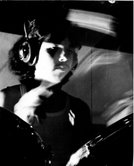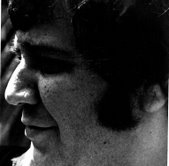Columbia Records Denies Tower Of Power Challenge!
It is now early 1971 and the first Rastus LP has just been released. The band, Jim Cantale and I are locked in the farmhouse in Chardon, Ohio. The weather is frightful. We have sustained near blizzard conditions for nearly two weeks. It's bloody cold! Rehearsal goes on....and on....and on. Funds get tighter and tighter all the time. "Where's my deuce?"
(The above paragraph is from Rhys' Diary.)
The radio is tuned to one of the local rock stations in Cleveland so that we can hear the first time a Rastus record is performed on the air. When we do, we are thoroughly disappointed. The output level is significantly lower than the previous record played and also lower than the record following. We, as yet, have not received test pressings as the company had said we would. They have already released the record without our final approval.
We finally received test pressings in the form of actual releases with jackets and everything. It was then that I realized why the level discrepancy was so drastic. The fools at GRT had decided to put everything we gave them on the disc. The total time on the studio sides were approximately 20 minutes per side. Normal length of an LP at the time was 15/16 minutes for delivery at maximum volume. 19/20 minutes per side meant the groove depth had to be much more shallow, thus minimizing the level output when played. The company had sacrificed output level for more product delivery. What did they care. They had no intention of promoting Rastus. Rastus was simply a write-off for the holding company. In essence....Rastus records sounded weak in comparison to the records delivered at full volume. If you want, add up the total time on any of the first LPs sides. You will see for yourself.
 Photo of: Smokey Smelko recording first LP.
Photo of: Smokey Smelko recording first LP.
Photo by: Mike Schneidler
About a week later, Smokey came in with a copy of Billboard Magazine. We all plowed through the Billboard to see if there were any listings anywhere. When we came to the back cover there was an ad placed by Columbia Records stating that Columbia and a band called Tower Of Power challenged any group to perform after said band. Upon consulting with the band and their manager, Angelo Crimi, I called a friend at Columbia Records and told him we would be anywhere at any time to follow Tower Of Power. He asked that we send our LP so they could hear it and see if the gig would be viable. We sent a copy to The Black Rock (the CBS building in Manhattan) overnight. About a week later I received a call from my friend at Columbia Records stating that they had made a mistake in releasing that advertisement and that they were sorry we had gone to so much trouble.
 Photo of: Angelo Crimi, Rastus' Manager.
Photo of: Angelo Crimi, Rastus' Manager.
Photo by: Mike Schneidler
Now we all know Tower Of Power is one hell of a band but Rastus would have driven their raggedy-ass bus all the way across the country just to play with this other horn band. We later found that it was Columbia who refused to deliver on the ad after hearing Rastus' second record in the package. The live recording. Why should they promote a Tower Of Power competitor on another label?
We had never really intended releasing the live record until sometime later. However, GRT with their all knowing minds decided more was better and that is why the first Rastus LP release has two LPs instead of one. Naturally, there was more to "write-off".
Rastus was deadly live. No one who knew the band wanted to play after they had performed. It was hopeless and many a band fell into the trap of "headliner". Rastus didn't care either way. As long as they got to play. That was all they lived for at that time. When Rastus hit the stage....they killed!
It would have been a great concert had Rastus been allowed to perform with Tower Of Power.
John Rhys
rastus.us.com
(The above paragraph is from Rhys' Diary.)
The radio is tuned to one of the local rock stations in Cleveland so that we can hear the first time a Rastus record is performed on the air. When we do, we are thoroughly disappointed. The output level is significantly lower than the previous record played and also lower than the record following. We, as yet, have not received test pressings as the company had said we would. They have already released the record without our final approval.
We finally received test pressings in the form of actual releases with jackets and everything. It was then that I realized why the level discrepancy was so drastic. The fools at GRT had decided to put everything we gave them on the disc. The total time on the studio sides were approximately 20 minutes per side. Normal length of an LP at the time was 15/16 minutes for delivery at maximum volume. 19/20 minutes per side meant the groove depth had to be much more shallow, thus minimizing the level output when played. The company had sacrificed output level for more product delivery. What did they care. They had no intention of promoting Rastus. Rastus was simply a write-off for the holding company. In essence....Rastus records sounded weak in comparison to the records delivered at full volume. If you want, add up the total time on any of the first LPs sides. You will see for yourself.
 Photo of: Smokey Smelko recording first LP.
Photo of: Smokey Smelko recording first LP.Photo by: Mike Schneidler
About a week later, Smokey came in with a copy of Billboard Magazine. We all plowed through the Billboard to see if there were any listings anywhere. When we came to the back cover there was an ad placed by Columbia Records stating that Columbia and a band called Tower Of Power challenged any group to perform after said band. Upon consulting with the band and their manager, Angelo Crimi, I called a friend at Columbia Records and told him we would be anywhere at any time to follow Tower Of Power. He asked that we send our LP so they could hear it and see if the gig would be viable. We sent a copy to The Black Rock (the CBS building in Manhattan) overnight. About a week later I received a call from my friend at Columbia Records stating that they had made a mistake in releasing that advertisement and that they were sorry we had gone to so much trouble.
 Photo of: Angelo Crimi, Rastus' Manager.
Photo of: Angelo Crimi, Rastus' Manager.Photo by: Mike Schneidler
Now we all know Tower Of Power is one hell of a band but Rastus would have driven their raggedy-ass bus all the way across the country just to play with this other horn band. We later found that it was Columbia who refused to deliver on the ad after hearing Rastus' second record in the package. The live recording. Why should they promote a Tower Of Power competitor on another label?
We had never really intended releasing the live record until sometime later. However, GRT with their all knowing minds decided more was better and that is why the first Rastus LP release has two LPs instead of one. Naturally, there was more to "write-off".
Rastus was deadly live. No one who knew the band wanted to play after they had performed. It was hopeless and many a band fell into the trap of "headliner". Rastus didn't care either way. As long as they got to play. That was all they lived for at that time. When Rastus hit the stage....they killed!
It would have been a great concert had Rastus been allowed to perform with Tower Of Power.
John Rhys
rastus.us.com


1 Comments:
This comment is from Danny Magalen. Former lead singer of Rastus.
__________________________________
John,the local rock station you referred to was one of the new Underground FM radio stations sweeping the nation. A few years earlier FM radio was mostly in a land of classical & semi-classical music, long hair stuff.----(There's an oxy-moron.!!!) The only time I heard FM radio growing up was at the local barber shop. They kept it low, sort of like elevator music, better, of coarse. The hippie scene arrived in full swing and in Cleveland we went from pop rock channels, such as WIXY 1260, WHK, the black stations- WJMO, and of coarse WABQ, ( in the evening we would pick up CKLW, probably the best pop station from Detroit)--- let me catch my breath--------------- to the cleaner sound of----(Drum-Roll) --- FM UNDERGROUND. The DJ's had a more serriooousss style, musical-expert-type, personality. The new DJ- product did not talk fast, funny, or obnoxious--just serious. You knew they were turned on to the new scene and they loved those LPs and long songs and funny smelling cigarettes! Those cigarettes allowed a listener to really get into the feeling & meaning of the work. The listener could turn up the volume and tell what was real and what was not. (Echo in the mixes- today--ouch!!) He-She could relate to the writing, performance, production--- wouldn't settle for a drum machine, -thin sounds, funny rolls, you understand. The standards were high as they should have been. I always thought that the progression of music was pulsating up and onward, and that the future would be unbelievable. I was right, however I think it took a rigid turn somewhere along the line. The week our LP got airplay Layla came out,---- made me sick. I thought-- of all times for this, perhaps the greatest rock tune of all times to come out---the same week we arrived on the scene! "Rastus" kind of luck ------some competition. To this day I regard the long version of Layla, among my personal top rock experiences. That was a cold week, the smell of coal oil all through the farm house, in our clothes, upstairs in your, Jimmy& Don's intellectual room--in our hair, - brrrr! But what a warm memory, and I miss the practice rooms we set up, carpeting the walls, etc,--- whatever it took too get that warm sound !!! Great guys for sure. Danny
Post a Comment
<< Home